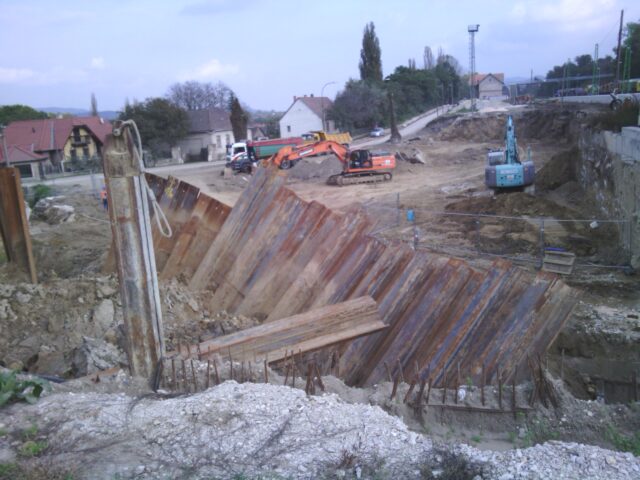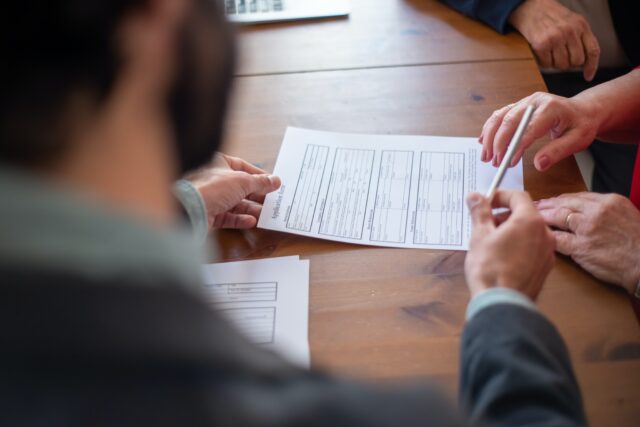Every year, thousands of construction workers are injured on the job. From falls to heavy equipment accidents to material handling injuries, construction remains one of the most dangerous industries. If you suffer an injury while working on a construction site, it’s important to understand your legal rights and options for seeking compensation. This article will outline how to properly handle and report a construction site injury and make ensure you get deserved compensation.
Properly documenting and reporting your injury, filing a workers’ compensation claim, and consulting with an experienced construction injury lawyer can all play crucial roles in helping you get the medical care, lost wages, and other damages you deserve. Far too many construction workers do not realize their full legal rights after an injury or make avoidable mistakes in the aftermath that hurt their cases.
In this blog, we aim to provide you with the information, advice, and resources you need to handle a construction site injury legally and effectively. From immediately after an accident occurs through workers’ compensation claims and potential liability lawsuits, we will cover everything you need to know to protect your rights and maximize the outcome for your specific injury situation.
Our goal is to empower you to advocate for yourself after facing the misfortune of a construction injury. With the right knowledge, documentation, and legal help, you can ensure you receive the full and fair compensation you are entitled to under the law for medical bills, missed work, permanent disability, and other impacts on your life.
So if you or a loved one has suffered an injury while working in construction, keep reading for what you need to know and do next. With the proper steps and assistance, you can navigate this difficult process and achieve the best outcome possible.
Reporting the Injury
 The most important thing to do after a construction injury is to report it immediately to your supervisor and employer. Any delay in notifying them can negatively impact a workers’ compensation claim or liability lawsuit. Verbally inform your boss right away and fill out an incident report form before leaving the site.
The most important thing to do after a construction injury is to report it immediately to your supervisor and employer. Any delay in notifying them can negatively impact a workers’ compensation claim or liability lawsuit. Verbally inform your boss right away and fill out an incident report form before leaving the site.
In the incident report, provide a detailed description of exactly what happened, where you were, what tools or equipment you were using, and who else was involved or witnessed the accident.
Also remember to note the time and date of injury, and list the nature of your injury, including any discomfort or symptoms you experienced immediately following the incident. Gather all pertinent details while they are fresh in your mind and attach any photos you took of the scene or injury.
The more thorough and accurate your incident report is, the more helpful it will be for your employer to investigate what occurred. And the more information you are able to provide about the accident itself, the stronger your potential case will be if you require further legal recourse.
So insist on completing an official incident report at the time of injury – don’t let your employer brush it off or ask you to just “tell them what happened later.” Documenting injuries properly from the start is critical.
Gathering Evidence


- Close-ups of all visible injuries and affected body parts
- Your injuries in relation to the accident scene
- The specific equipment, tools, or materials involved in the incident
- Any hazardous conditions that may have contributed to the accident
Take as many photos as needed from different angles to fully document the situation. Then obtain contact info from eyewitnesses and get their full names, phone numbers, and email addresses if possible. Briefly discuss with each witness what they saw to get their account of the incident while their memory is fresh.
If any equipment broke, malfunctioned, or wore out in a way that caused or contributed to the accident, keep those damaged items as physical evidence. This can include tools, ladders, scaffolds, ropes, harnesses, machinery parts, etc. Note where the damaged item is stored for easy access later. This evidence can prove critical in establishing negligence or liability, so be thorough. The more documentation you have, the more compelling your case will be when filing a workers’ compensation claim or construction accident lawsuit.
Do not leave the accident scene until you have gathered as much relevant evidence as possible through photos, witness information, and physical proof.
Seeking Medical Attention


When visiting the doctor, be very descriptive about how the injury happened, what activities or movements cause you pain, and any symptoms you are experiencing. The more details you provide, the more accurately the doctor can diagnose your injury and prescribe appropriate treatment. Ask the doctor to document the likely cause of your injury based on the accident details you give them. Getting a medical opinion linking your specific injuries to the event that occurred at work can help support a workers’ compensation claim or liability lawsuit later on.
So seek medical attention promptly, even if you feel you can “walk it off.” Getting an initial exam, diagnosis, and treatment records soon after an incident occurs will establish a baseline for the extent of your injury that you can then build upon if the condition worsens over time. Visiting a doctor immediately following a construction site injury- no matter how minor it may seem – is critical to protecting your rights and interests going forward.
Filing for compensation


To file a claim, you will need to complete a W.CL. 1 form (available from the Compensation Fund) and submit it along with supporting documents like medical records and witness statements. Your employer will also need to complete parts of the form. The Compensation Fund may request additional information or dispute some aspects of your claim. Be prepared to provide detailed evidence of how the injury occurred, the extent of your injuries, and any wages you have lost. You may need to submit reports from your treating physician.
If your claim is accepted, the Compensation Fund will pay you monthly compensation for as long as you are unable to work due to the injury. You may also receive a lump sum payment for permanent disability. But be aware that insurance companies do not always make the claims process smooth. They may try to minimize or deny payments. That is why it is important to gather strong evidence from the start and be diligent in following up on your claim and any requests for additional information.
With a thorough claim application supported by medical records, photos, witness statements and other evidence, you increase the chance of a timely and full payout that covers all your losses resulting from the construction injury.
Consulting a Lawyer
For serious construction injuries that require extensive medical care, result in permanent disability or lost earnings, or if your workers’ compensation claim is denied, consulting an experienced construction injury lawyer can help ensure you receive fair compensation. An attorney can review the evidence surrounding your accident, investigate whether any parties were negligent, and argue your case to the Compensation Fund or in court if needed. They know how to build a strong liability case when workers’ comp benefits are insufficient.
Some reasons to consult a lawyer after a construction injury in South Africa include:
- Permanent disabilities – Significant permanent impairments that impact your quality of life may warrant a larger insurance payout or lawsuit.
- Extensive medical costs – If ongoing treatment will incur high medical bills not fully covered by workers’ comp, a lawyer can fight for coverage.
- Denied claims – If your workers’ comp claim is wrongfully declined even though you have supporting evidence, an attorney can appeal the decision.
- Negligence – If it seems that negligent safety practices, faulty equipment or other reasons beyond normal occupational hazards caused your injury, a liability claim may be possible.
An experienced construction injury lawyer can review the specifics of your case and recommend the best options to ensure you receive adequate compensation for your losses and suffering. For serious injuries, legal representation may be critical. The lawyer may be able to negotiate a settlement with the Compensation Fund or take legal action against responsible parties if needed. But their expertise and experience arguing these types of cases can greatly improve your chances of a successful outcome.
Summary
After a construction injury, promptly report the incident, gather evidence, seek medical attention and file a workers’ comp claim to ensure you receive all compensation owed. Take thorough photos of your injury and the scene, obtain witness information, and keep any damaged equipment. Even minor injuries require medical exams to document the initial severity. Fill out forms correctly and respond quickly to requests for information during the claims process. For serious injuries, extensive costs, or denied claims, consulting a construction injury lawyer can improve your chances of a full settlement.


